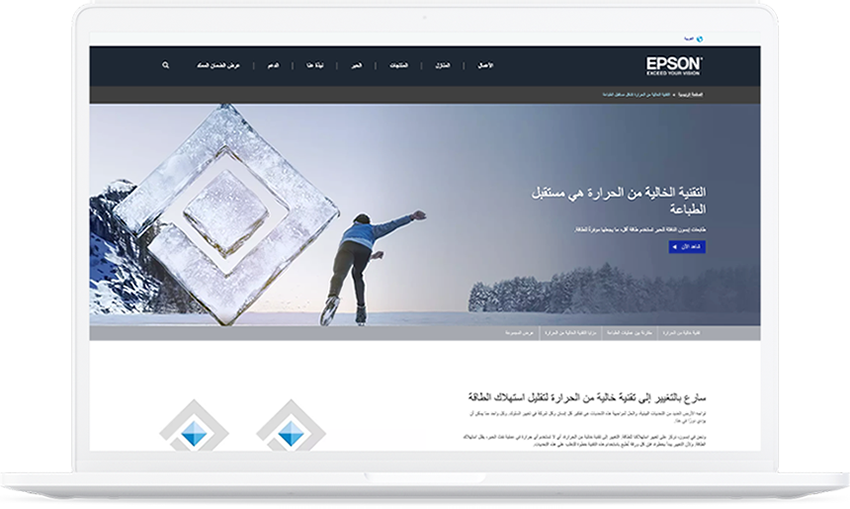Transcreation faux-pas
Whilst translation dates back to around the 1st century BC, with adaptations of ancient texts diffusing knowledge amongst the powers of the Roman and Greek empires, transcreation is a relatively new concept. Transcreation goes one step further than standard text translation in that it looks at the whole message that needs conveying in another culture, and considers everything that will impact the target audience’s understanding of it. This could mean that cultural references may need adjusting, e.g. a UK marketing text that describes something as being ‘bigger than Big Ben’ could be changed to refer to the Eiffel Tower when it is translated into French, or that images/colours need replacing due to the connotations they have in different parts of the world.
Clearly, sound cultural knowledge is paramount when undertaking a transcreation task and that’s why, here at Xigen, we only use local translators and copywriters for such specialised activities. This means they have an unrivalled grasp of what makes people in their country tick: what’s familiar to them, what do they find unappealing and what will get them laughing at your company’s expense…
Here is a selection of corporate blunders, all errors that could have been avoided with an experienced agency such as Xigen guiding you through your ventures into international territories:
HSBC

Despite its clear international focus making it a major player on the global stage, in 2009, HSBC decided to review its marketing strategy – a decision based partly on the mistranslation of its former slogan. ‘Assume Nothing’ was wrongly translated as ‘Do Nothing’ in a number of different languages, presumably based on the verb ‘assume’’s alternative meaning of ‘take on’/’perform’. The irony of it all was that many clients’ inclination was just that – to keep hold of their money and do nothing. The awkward recommendation meant the financial giant had to go back to the drawing board and eventually opted for the less problematic tagline of ‘The world’s private bank’. The whole thing cost HSBC $10 million and surely some of their consumers’ confidence at a time when people’s trust in banks was already waning. Maybe it was their turn to ‘assume nothing’ about translation…
C&C Group

As anyone in marketing will know, finding the perfect product name can require a good deal of brainwork and, once it’s in place, it can form the basis of a brand’s identity and even become the household name for that product (think ‘Hoover’). Given this reality, it seems astonishing that some companies would be willing to launch a product on an international market without a second’s thought or any research into potential misinterpretations in the new territory. Perhaps this was where C&C Group went wrong when they merrily introduced their whiskey liqueur ‘Irish Mist’ in Germany. Sales stalled – probably because ‘Mist’ is the German translation of ‘manure’. Rolls Royce reportedly narrowly missed making the same gaffe when they launched their ‘Silver Mist’ model on the German market, shrewdly renaming it ‘Silver Shadow’ for sale in the car-crazy country.
Pampers

As discussed, it’s not just the words that you need to think about when you want your advertising campaigns to go global. In the 1970s, Proctor & Gamble decided to launch Pampers nappies in Japan and felt sure the advertisement that had done so well in the U.S. would be universally successful. They were wrong. Both the ad and the packaging featured a stork, well-recognised in the Western world as the bird that delivers babies (or nappies in this case). However, Japanese parents were left bewildered and somewhat troubled by this – such big birds are frightening, particularly in relation to tiny, newborn babies. Careful research would have revealed that there is in fact a Japanese equivalent – floating peaches are said to bring babies upstream to the new parents. With little effort, this could easily have been the symbol used on the Japanese market and made Pampers an instant success during the country’s baby boom of 1971-4.
Electrolux

Sometimes linguistic knowledge isn’t enough to convert your domestic sales into international ones. The Swedish electronics company Electrolux found their vacuum cleaner simply wasn’t cleaning up stateside, despite the catchy English rhyme they were already using to advertise it. Sure, ‘Nothing sucks like an Electrolux’ makes sense grammatically and would work fine had American slang not developed to give this slogan an unintentionally derogative tone but, unfortunately, that was the case. Only having your finger on the pulse in the foreign markets will prevent such calamities.
At Xigen, we combine marketing-focused translations with rigorously-tested web localisation to transform successful campaigns into worldwide hits. If you’d like to know how investing in transcreation could help your brand, get in touch to discuss your creative assets.
Share: Tweet
